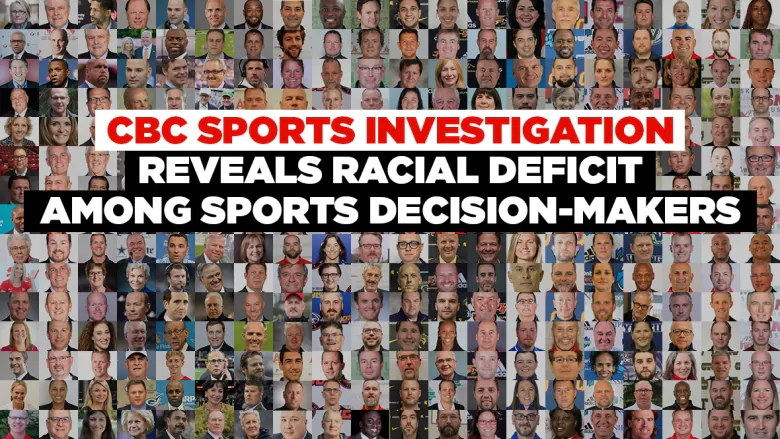The vast majority of leadership positions in Canadian sport — from the NHL and CFL to high-performance governing bodies and university athletics — are occupied by people who are white. For many Black, Indigenous and persons of colour, that is a problem.

For 14 years Clayton Pottinger had tremendous success as a basketball coach, his teams winning nearly 80 per cent of their games.
But an opportunity to coach at the next level never came.
As a Black head coach, he often wondered why.
“I don’t know a 100 per cent the reasons behind it. I don’t know that it was race related but I don’t discount that,” Pottinger told CBC Sports. “I was interviewed for three positions but overlooked — not even granted an interview dozens of times. It got to the point where I didn’t think it was going to happen.”
Pottinger’s story may sound like a tale often told south of the border, but his is a Canadian story.
Last March, he finally broke through and landed his first job at the Canadian university level when UBC-Okanagan named him head coach of its men’s basketball team.
Pottinger, 49, joined a small group of Black coaches who have reached the highest leadership positions in Canadian university sports.
For decades, North American professional sports leagues have been castigated for the dearth of Black and people of colour employed in key leadership and coaching positions.
An investigation by CBC Sports reveals that the issue is prevalent across Canadian sports.
A visual audit conducted by CBC Sports examined hundreds of key positions at all 56 Canadian universities that compete under the umbrella of national governing body U Sports, including the school’s athletic director and head coach of football, men’s and women’s basketball, hockey and soccer, and track.
Of the nearly 400 positions examined, only about 10 per cent were held by Black, Indigenous or persons of colour (BIPOC). Only one of the 56 schools has a non-white athletic director.
“You could go to any website at any university and you’d see one of the five principles or objectives is diversity and inclusion, yet you see the numbers in our studies, you see the [CBC’s] numbers,” said Dr. Richard Lapchick, founder and director of the Institute For Diversity and Ethics and Sport. The institute, based at the University of Central Florida, was the first to begin compiling racial breakdowns of hiring practices in the United States.
Lapchick said filling athletic leadership positions on North American college campuses is not always a result of overt racism, but rather a persistent old boys’ network.

“If you have a white athletic director and a white [university] president and they’re making the key hires in your athletic department, the people they know are more than likely to be white,” Lapchick said. “So they’re going to turn to them in that selection process as opposed to who [else] might be out there.”
The recent killing of George Floyd by police in Minneapolis in May has refocused the lens on racial inequality in everyday North American life. Hundreds of thousands of people have filled city streets demanding an end to systemic racism.
Many companies and organizations, including the CBC, have been forced to acknowledge both a lack of diversity among senior leadership, while addressing systemic racism in the way they conduct business both internally and externally.
The world of sports has not escaped this scrutiny.
Leagues condemn racism
In wake of Floyd’s death, professional leagues across North America issued statem

